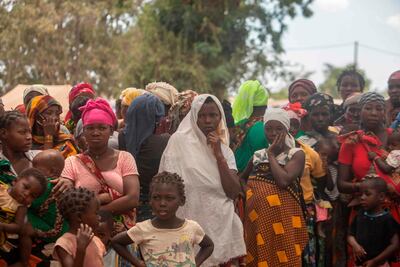Seven African nations are among the 10 riskiest global locations for terrorism, according to a new study.
Terrorist incidents in Africa have risen by 13% in the last quarter alone, according to research by Verisk Maplecroft, illustrating the heightened risk from ISIS and other Islamist insurgents on the continent.
The National has published an investigation into how the extremist group has gained a territorial foothold, particularly in West Africa, which has suffered much of the violence.
Analysts say their findings should be a “major cause of concern” for the region’s governments, with the outlook likely to get worse in 2021.
"Terrorist groups operating throughout sub-Saharan Africa are unlikely to lose their momentum in the next year," said Alexandre Raymakers, senior Africa analyst at Verisk Maplecroft.
"As the economic fallout from Covid-19 empties government coffers, governments will struggle to implement the comprehensive counterterrorism strategies required to contain these security threats."
Here are the African countries most exposed to a resurgent ISIS and the renewed threat of terrorism, according to the report.
Burkina Faso, Mali and Somalia
These three nations were considered the world’s joint most at risk countries for terrorism, alongside Syria and Afghanistan in the Middle East.
The report said militants will avoid striking mining sites and instead target government and military installations in order to extend their territorial control.
The National reported how ISIS has significant control of large swathes of the Sahel borderlands between Burkina Faso and Mali as it continues its quest for landmark territory.
“The Islamic State in the Greater Sahara has been stepping up its presence, expanding its activities and even competing with Al Qaeda-affiliated groups already operating in the area,” warned Dr Francesco Milan, a lecturer in violent extremism at King's College London.
Cameroon
Cameroon has struggled with an uptick in terror attacks in recent years and was considered to have the world’s sixth worst terror risk.
The nation has fallen victim to worsening violence in the Sahel, amid intensification of Boko Haram attacks in Chad, Nigeria and Cameroon, the study said.
Mozambique
Gas-rich Mozambique is also facing an “extreme” threat from extremist groups and was placed seventh on the list.
Intelligence analysts have reported a “drastic increase in sophistication” in the Mozambique extremists' planning and attacks.
Earlier this year, terrorist groups annexed a Mozambican port and nearby islands in a campaign that allegedly had been coordinated by ISIS commanders in Iraq.
The National's investigation found that after a series of successful attacks, concerns are growing that the ISIS is aiming to take resource-rich Cabo Delgado in the north of the country
DR Congo
Poaching and proceeds from illegal ruby, diamond and gold mining have fuelled the security risk in the central African nation, which was ranked ninth.
An investigation by The National found that the Mbororo semi-nomadic people of the region have become affiliated to ISIS as it regroups and grows in strength and resources.
“They are not only poaching hundreds of elephants, especially in Garamba National Park, in north-east Congo, but they carry a strong ISIS message that is influencing impoverished people,” a security officer in the DRC said.
Verisk Maplecroft warned that the country’s “security-heavy approach to counterterrorism” could result in substantial human rights violations committed against the civilian population.
Niger
Niger was ranked as having the globe’s ninth highest terrorist risk by the study following a spate of attacks.
Many of these attacks were coordinated using lesser known social media platforms after being booted off Facebook and Twitter, The National revealed. The extremists have moved to a platform called Rocket Chat where they use their own servers.
Rocket Chat is insulated from outside attack, "which means that it's a place where conversations and content can be really interesting", said Charlie Winter, of the International Centre for the Study of Radicalisation at King's College London.



